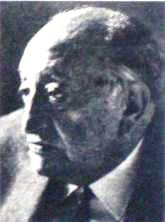
Autor im Porträt
Miguel Angel Asturias
zur AutorenweltToptitel von Miguel Angel Asturias
Men of Maize
Broschiertes Buch
"Deep in the mountain forests of Guatemala, a community of indigenous Mayans-the "men of maize"-serves as stewards to sacred corn crops. When outsiders encroach on their territory and threaten to abuse the fertile land, they enter a bloody struggle to protect their way of life. This 75th anniversary edition of Nobel Prize Winner Miguel âAngel Asturias's epic tale of the collision of capitalist exploitation and indigenous wisdom features a new introduction and a foreword by Pulitzer Prize winner Hâector Tobar"--…mehr
19,99 €

